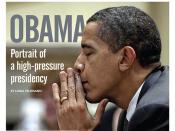Richard Louv is now the author of six books. Each is about family, nature, and community. He has been a longtime columnist for the San Diego Union Tribune, New York Times, and Christian Science Monitor.
Nature child relationship
In the book, the author is trying to express the importance of nature in a child's life. How unlike television, nature does not steal time with mindless, violent, un-educational rubbish. What nature offers is healing for a child living with emotional instability. In nature, a child finds freedom and fantasy. A place that is distant from the adult world. A separate space.
Nature deficit disorder in not a medical condition; it is the author's description of the human costs of alienation from nature. This alienation can have a negative effect on children, adults, families, and communities. This book shows the research results that direct exposure to nature is essential for healthy childhood development.
Nature plays a key roll in physical, emotional, and spiritual growth. It has a way of aiding as therapy for depression, obesity, and ADD.
Children go out to play and without a doubt can find adventure. Parents on the other hand panic if there children are not in their sight. Children should be outdoors playing sports such as baseball, basketball, soccer, and good old fashion tag. Instead the stay indoors trapped by the addiction of the computer game or a television show and their parents insecurity. One great benefit of the great outdoors is not only good and healthy for children but it free. Nature is often overlooked as a healing method for the emotional hardships in a child's life. Instead, kids today with emotional problems are given anti-depressants.
Most children in society today have no idea of the native species that live within their communities and parks.


